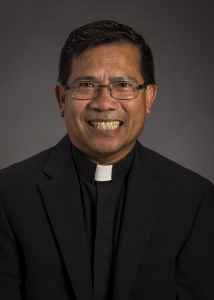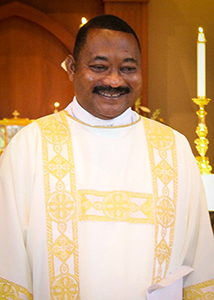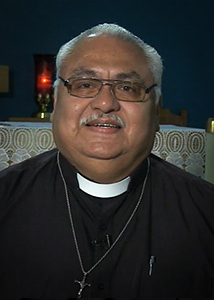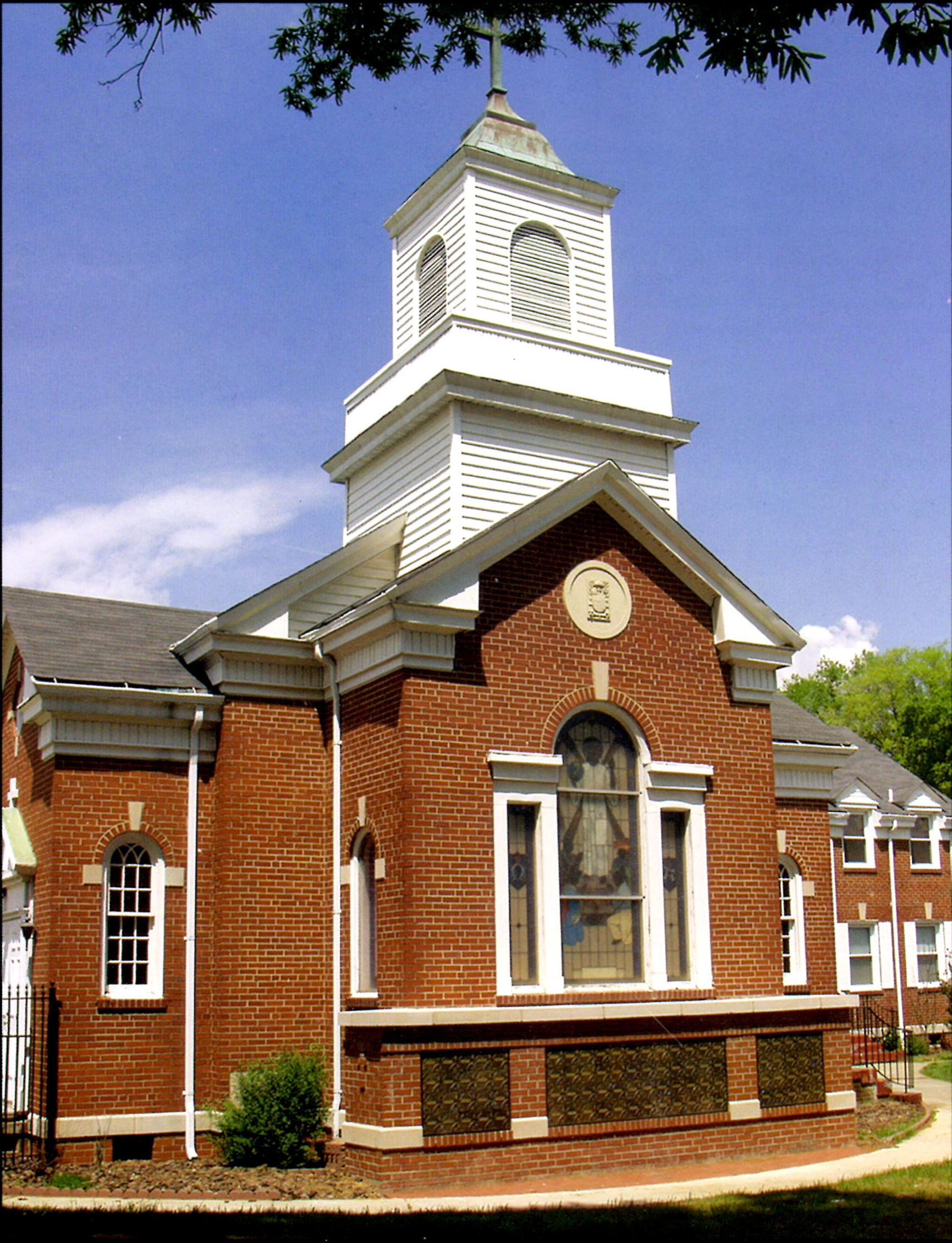OUR CLERGY

Father Joseph Dinh

Emmanuel Ukattah, Deacon

Enedino Aquino, Deacon

Father Joseph Dinh

Emmanuel Ukattah, Deacon

Enedino Aquino, Deacon
Brothers and Sisters in Christ,
Lent is a journey with Jesus, a journey from death to life. Last week we entered the desert with Jesus to resist temptations. This week Jesus invites us to go up to a mountain to witness his transfiguration. In the gospel, Jesus took Peter, James and John with him up to the mountain and when he was praying, he was changed, he was transfigured before the disciples.
Why did Jesus want to be transfigured before the disciples? There are several reasons: First, even though the disciples followed Jesus several years, they did not truly understand the person and mission of Jesus because they many times argued among themselves who would be the first in the kingdom of Jesus. Therefore, Jesus intended to show them his glory, the glory of the Son of God. He was the Messiah who came to fulfill the law and the prophets. Second, Jesus wanted them to catch a glimpse of his glory in order to strengthen their faith to follow Jesus. And third, Jesus also wanted to show them that his true glory would be in Jerusalem where he passed from death to life.
Yes, true glory would come after Jesus has triumphed over the power of death, to rise from death to life. In the same way, if we want to share in the glory of Jesus we have to follow him, to take up our daily cross. The way of the cross is the way to glory.
If you have complained much about your life, your job, your burdens of life, Lent invites you to look down to see that you are more fortunate than billions of people on earth. You have been blessed by the Lord. You need to constantly give thanks to the Lord. If you are pursuing your own desires and selfish ambitions, Lent is the time for you to reflect upon your life. The way of the cross is a difficult way, full of sacrifices, but that way is the way to glory and eternal life promised by the Lord. If you have not committed to anything, Lent invites you to work harder than before. It is a time for you to commit yourselves to daily prayers, devotions, Stations of the Cross, to your daily and weekly Mass with the Lord, to serve the Lord through serving others.
Yes, Lent is a time of grace, joy and fulfillment. May the Lord bless you and journey with you throughout this holy season!
Fr. Joe

Christ the King Church was founded in 1940 to serve the African-American Catholics in High Point, and has since become a multi-ethnic parish celebrating both the diversity and unity of the Catholic faith and tradition. Then-Bishop Eugene F. McGuinness of Raleigh invited the Franciscan Friars of the Atonement of Graymoor, NY to staff the new mission in High Point in 1940. Father Bernardine Watson served as the first pastor, originally celebrating Mass in a funeral home. Through the generosity and perseverance of Father Watson and several benefactors, a clothing shop was acquired for use by the mission. While Mass continued to be celebrated there during much of 1941, the mission community members also turned their attention to building a new church and rectory on Kivett Drive. The new colonial-style church was dedicated by Bishop McGuinness Dec. 14, 1941.
During the 1940s and into the ’50s, the Christ the King parish community continued to grow. A school building and convent were built in 1949, and in 1950 the Franciscan Handmaids arrived from New York City to staff the school. The African-American communities, both Catholic and non-Catholic, of High Point, Thomasville and Greensboro were served by the new Christ the King School, which opened its doors to 50 students in September 1950. The friars continued their pastorate in High Point for the next several decades, cultivating a faith community that became continually more culturally diverse over time. A stained-glass window behind the church’s choir loft depicts that diversity, with Jesus surrounded by four individuals representing the African, Asian, European and Indian bloodlines that make up much of the parish community today.
Lowering enrollment, financial difficulties and the recalling of the sisters to New York forced Christ the King School to close in 1981. The diocesan office of education converted the school for use as a day care center, which began its operation in August 1981. That same year, Franciscan Sisters of the Atonement arrived at Christ the King Church to conduct the religious education program and other ministerial work, including assisting at the day care center. The center, still located on parish grounds, is now privately operated and continues to serve the area.
Upon the friars’ leaving High Point in 1991, Christ the King Church became a diocesan parish in December of that year. Fathers Martin Madison and John Hoover served the parish until December 1994, when Father Philip Kollithanath, was appointed to Christ the King Church. Assisting in the advancing growth of the Christ the King community have been many commissions and ministries focusing on the spiritual , educational, multicultural and evangelical dimensions of the parish. Parishioners gather to engage in Bible study , to learn English as a Second Language, to put their faith into action in the local community and to celebrate their ethnicity. A Hispanic center and bilingual religious education program provide sharing and learning opportunities for English and Spanish speaking parishioners, and the parish African-American Ministry offers outreach programs benefiting the local region. The Women’s Guild, Altar Guild, 55+ Club and Young & Spirited Group are active in parish and community services, and the evangelization commission provides for the spiritual needs of homebound parishioners through its Visitation Ministry. The community of Christ the King Church looks ahead to expansion and renovation projects that will accommodate the needs of a growing parish. One hundred and sixty-one households currently make up the parish registry.